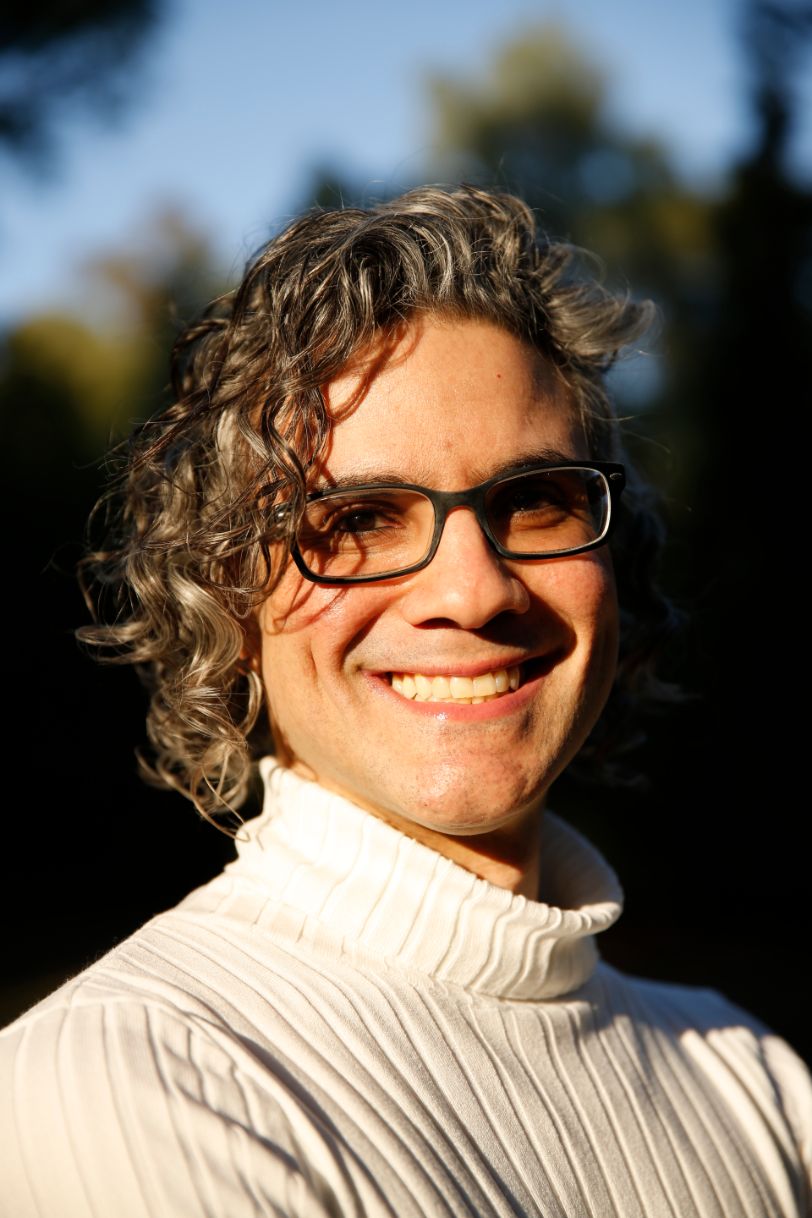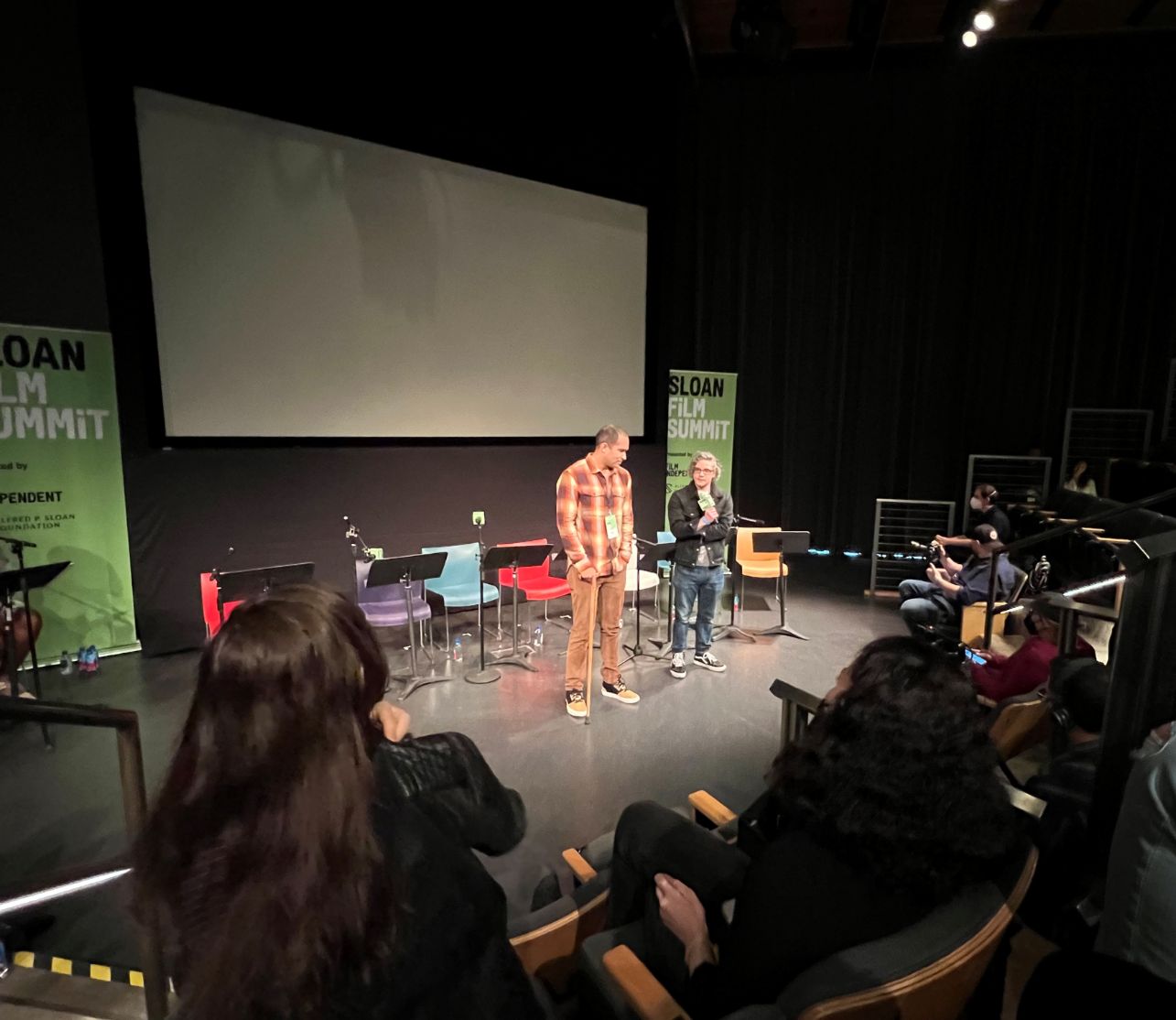Last Updated on March 5, 2024
In a realm where storytelling is both art and craft, Vee Saieh emerges as a beacon, illuminating the paths less traveled in screenwriting. The film and entertainment industry, always in a state of flux and evolution, remains a domain where stories hold paramount significance. In today’s age, with an abundance of platforms and mediums, compelling narratives are more sought after than ever. The industry craves originality, pushing boundaries, and stepping into uncharted terrains. It’s in this challenging environment that consistent performers like Vee Saieh make their indelible mark.
Born into a world brimming with stories, Vee Saieh, at her core, is a storyteller par excellence. Over the years, her work has transcended mere words on a page, transforming into narratives that captivate, challenge, and resonate. Not every writer manages to straddle multiple genres with aplomb, but Vee does it, seemingly with ease. She isn’t just another screenwriter; she’s a force, consistently producing content that not only garners attention but also makes one reflect. Her projects, time and again, have been celebrated, distinguishing her from her contemporaries.
One might wonder, what makes Vee Saieh’s journey so special? It’s the recognition she earns, consistently. Awards and acknowledgments are not strangers to her; they seem to be almost an inevitable part of her screenwriting journey. Be it the intricate drama of “ASIA A” or the captivating narrative of “KINGDOM COME,” her stories resonate, securing recognitions from reputed platforms such as the Tribeca Film Institute and Film Independent’s Fast Track program. Her accolades from PAGE Awards and Final Draft’s Big Break contest further enhance her standing in the film fraternity.
Yet, one achievement shines particularly bright, encapsulating her prowess and versatility as a screenwriter – her consistent high rankings in Coverfly. To rank in Coverfly’s Top 1% is no minor feat; to do so across multiple genres and formats is nothing short of extraordinary. This is not a flash-in-the-pan success but a testament to Vee’s profound understanding of the art of storytelling, irrespective of genre constraints or format specifications. Each of her tales, while diverse in setting, mood, and tone, converge on one common ground: their excellence.
In our exclusive interview with Vee Saieh, we delved deeper into how she manages to get such consistent recognition., The conversation journeyed through the intricacies of her creative process, the inspirations behind her diverse stories, and her approach to storytelling that has made her a regular name in Coverfly’s esteemed rankings. As Vee articulated her journey, it became evident that her consistent high rankings weren’t mere serendipity. They were the result of an intricate blend of passion, hard work, and an innate ability to tell stories that matter, stories that touch the soul, and stories that challenge the norm.
In an era where the film and entertainment industry is oversaturated with content, Vee Saieh stands tall, not merely because of her accolades, but because of her ability to weave narratives that linger, long after the final credits roll.

Hello, Vee! We’d love to learn more about your work. Earning a spot in Coverfly’s Top 1% once is remarkable, but achieving it across multiple genres and formats is extraordinary. To what do you attribute your sustained excellence in screenwriting?
Thank you! I’ve been very fortunate in the reception my projects have gotten. In terms of consistency, aside from the writing itself, it cannot be overstated how important it is to start with a strong idea and follow through on the execution – and honing this story sense really comes with practice.
It should be said, though, that everyone has a different measure to decide if a story is worth telling or not. Personally, I write stories that I either haven’t seen done before or haven’t seen executed in the particular way I envision. It’s important that only you can tell the story you’re telling. Last but not least, I need to be excited about the idea!!
Given your consistent high rankings, what elements or principles of screenwriting do you believe are fundamental to crafting a compelling story, irrespective of its genre or format?
For me, creating a compelling story involves a mixture of several key elements. First, there’s the need for a compelling premise, one that captures attention through a concise logline. This should not only clarify what the story is about but also make people genuinely interested in reading or watching it.
Second, the crafting of nuanced and relatable characters is crucial; this element is non-negotiable. Ultimately, we engage with movies and TV shows to feel something, and if we don’t care about the characters or what happens to them, the narrative is unlikely to be successful.
Lastly, you need to have something to say, a point of view or message you’re trying to get across (this is usually tied to the theme). If you can engage the audience emotionally and intellectually, that’s a very powerful proposition.
Transitioning seamlessly between genres is no easy task. How do you approach each genre differently, and what remains consistent in your storytelling approach?
For me, the key to being able to transition seamlessly between genres is really knowing their conventions and having a story idea suited to the specific genre you want to tell it in. Genre, however, is just the final form a particular story takes. All other storytelling fundamentals – for example, character, plot, dialogue, pacing – are largely the same across genres.
Good writing is good writing is good writing. The challenge comes in knowing how to adapt each element to suit the genre you’re writing in. This is where knowing the conventions is indispensable. In short, you need to have both, a solid grasp on the universal elements of storytelling, and a deep knowledge of the genre you’re working in to shape those elements accordingly.

With regular recognition comes feedback from various quarters. How have critiques or insights from these competitions influenced your writing style or technique?
Honestly, entire books could be written (and probably have been!) on how to parse notes. Personally, when there’s a note I’m unsure of, I try to focus on the proverbial “note behind the note.” Basically, it’s the idea that the reader is bumping on something but what they’re identifying might not be the actual issue so you have to do some digging. For me, it always helps to state my intention so I can find out if it’s not coming across or if it is but it’s just not landing.
Some of the notes that have influenced my writing the most are the ones suggesting cuts. I’m sure thousands of other writers can relate, but I’m always striving to cut my scripts down; however, it’s not always obvious what’s extraneous (sometimes, it’s even the stuff you thought indispensable!).
Your screenplays span a wide range of topics and styles. Can you share some of the inspirations behind your diverse stories and how you ensure each one resonates with readers and judges?
Each story is just so different, with vastly different origins, but they’re usually driven by a desire to explore a gray morality. For instance, in KINGDOM COME, a detective working for Heaven questions her loyalty when she discovers it might have been angels, and not demons, who killed her husband. It then goes into questions about the “greater good” and at which point the price to pay is so high it stops being “good” entirely.
In terms of consistently resonating with readers, you really just need to have interesting characters, a compelling story, and a clear message. Always.
For many writers, consistent recognition like yours is a dream. How do you benchmark success for yourself, and how do these accolades play into your personal and professional goals?
I’ve been very fortunate with the reception my projects have gotten. Success for me, though, is hard to define as it’s really a moving target. I’m incredibly ambitious, and once I achieve my goal, it becomes a stepping stone for my next goal. Once I reach it, that goal becomes a stepping stone for the next and so on and so forth. So, I often have to remind myself to appreciate what I’ve accomplished and how far I’ve come.
These current accolades are not only drawing attention to me but also to the other projects I’m developing, some in collaboration with others. We hope to share these with the world in the near future. These include the drama feature ASIA A and the horror-comedy feature NOCHE DEL INFIERNO, both based on shorts I wrote on that have found great success in the festival circuit.
Despite your consistent successes, there must have been times of doubt or challenges. Can you share a time when you faced a hurdle in your writing journey and how you overcame it?

Going from the “ASIA A” short to the feature was a challenging endeavor. Not only was I unfamiliar with the world of the story, but it also wasn’t the most commercial drama. I worked with the director over an extended period of time to develop a story that accurately captured his experience as someone living with a spinal cord injury. I wrote maybe three or four drafts before finally landing on the right execution for the story.
This was reinforced when we received a Sloan grant from the prestigious Tribeca Film Institute and later a second one from Film Independent, which produces the Spirit Awards. These two grants were the boost we needed to really raise the project’s profile. At the moment, the script has some notable attachments and we hope to enter production soon. The key to overcoming these hurdles was good old-fashioned persistence.
For budding writers aiming to achieve a similar level of consistent recognition in their work, what key advice would you offer in terms of honing their craft and staying motivated?
With the caveat that what worked for me may not work for others, I would highly recommend reading screenplays and books about screenwriting. The latter tells you what you should be doing, while the former shows you how it’s done. It’s also worth noting that no screenwriting approach fits all stories, so it’s helpful to be familiar with several so that you can lean into the one that fits your current project best. You will also encounter different execs who are familiar with different approaches, and you need to be able to speak their language.
In terms of staying motivated, it’s helpful to remember that it’s a marathon, not a race. Have other things going in your life that replenish and energize you so that you can keep going, whether it’s family, hobbies, travel, or whatever else. That pick-me-up will rarely come from the industry.

